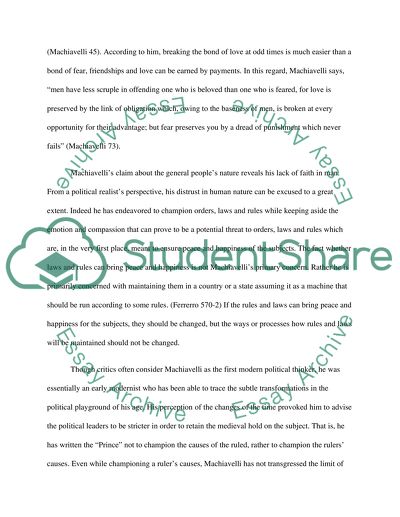Cite this document
(“What did Machiavelli claim it is better for the Prince to be-feared or Essay”, n.d.)
Retrieved from https://studentshare.org/history/1592315-what-did-machiavelli-claim-it-is-better-for-the-prince-to-be-feared-or-loved-and-why-why-is-this-important-for-later-political-thought
Retrieved from https://studentshare.org/history/1592315-what-did-machiavelli-claim-it-is-better-for-the-prince-to-be-feared-or-loved-and-why-why-is-this-important-for-later-political-thought
(What Did Machiavelli Claim It Is Better for the Prince to Be-Feared or Essay)
https://studentshare.org/history/1592315-what-did-machiavelli-claim-it-is-better-for-the-prince-to-be-feared-or-loved-and-why-why-is-this-important-for-later-political-thought.
https://studentshare.org/history/1592315-what-did-machiavelli-claim-it-is-better-for-the-prince-to-be-feared-or-loved-and-why-why-is-this-important-for-later-political-thought.
“What Did Machiavelli Claim It Is Better for the Prince to Be-Feared or Essay”, n.d. https://studentshare.org/history/1592315-what-did-machiavelli-claim-it-is-better-for-the-prince-to-be-feared-or-loved-and-why-why-is-this-important-for-later-political-thought.


